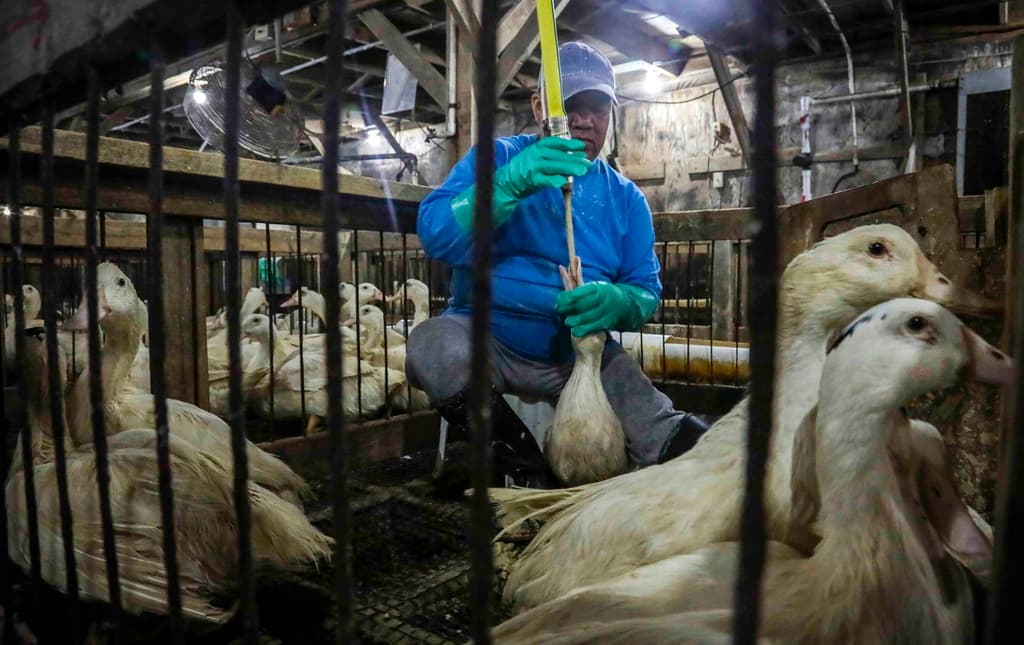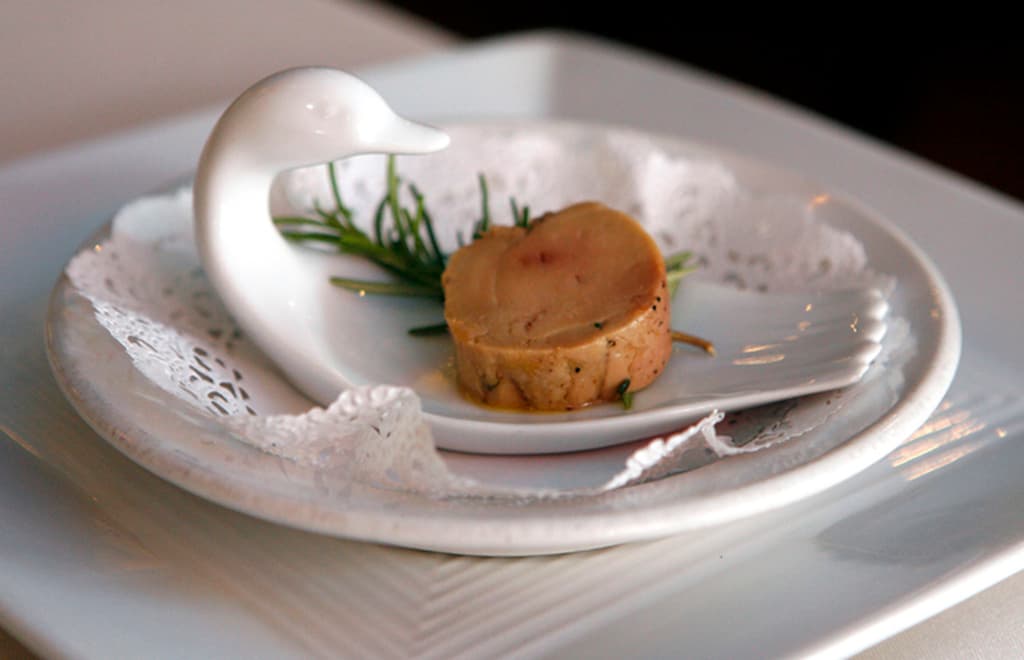The animal rights group that tried to shut down a slaughterhouse in Denver has a new target: banning foie gras.
Pro-Animal Colorado, formerly known as Pro-Animal Future, submitted a proposed ballot initiative earlier this month that would ban the sale in Denver of foie gras, which is produced by force-feeding birds. The proposal would also ban force-feeding poultry in the city.
The proposed initiative is only in the beginning stage, so the details may change. Denver city staff hosted a public review of the proposal Tuesday, providing feedback for potential revisions.
A previous draft of the proposal included a ban on additional products like pâté and duck fat, but Pro-Animal Colorado said those products were removed because they don’t require force-feeding.
Animal rights activists say this is an 'urgent ethical concern.'
The practice of force-feeding poultry is typically done to make the luxury food foie gras, a French delicacy that is made from the liver of a duck or goose.
Often, feeding tubes are repeatedly forced down the throats of ducks and geese. The excess food causes the liver to balloon, creating the trademark buttery texture of the final product.
The practice is controversial. Several countries, like Brazil, the United Kingdom and Germany, ban either force-feeding or the production of foie gras. California lawmakers passed a bill to ban force-feeding and foie gras in 2004, which has constantly been challenged in courts.

Olivia Hammond, the spokesperson for Pro-Animal Colorado, said banning the practice and its products would improve animal welfare without impacting the daily lives of Denverites.
“I just think we can all agree that animals should be able to live natural and healthy lives,” Hammond said. “I really think this measure addresses an urgent ethical concern without impacting the average consumer.”
Pro-Animal Colorado’s last ballot measure attempted to ban meatpacking facilities from Denver city limits. While that measure was handily defeated in the November election, Hammond said a poll by Pro-Animal Colorado showed wide support of banning force-feeding animals.
Hammond said there are no factories or farms in Denver that force-feed birds, but the proposal’s language would ban any facilities from opening in the future. Meanwhile, she said, up to 15 restaurants in Denver serve products derived from force-feeding, depending on the season.
Several restaurants, both in Denver and nationwide, have been targeted by animal rights protests urging owners to take foie gras off the menu.
Many restaurateurs and chefs have continued to defend the practice, arguing that some producers take a more humane approach to force-feeding and would be penalized by an umbrella ban. But many animal rights advocates see no humane way to forcibly feed an animal.
If the proposal passes, it won’t necessarily mean the disappearance of the French delicacy in the Mile High City.
For starters, the ban would only apply to Denver, meaning neighboring cities and their restaurants could continue to serve it.
But also, the proposal includes exceptions.
Making foie gras without force-feeding a bird is possible, but difficult and expensive.

A Spanish farm utilizes a technique from the 1400s to fatten up their birds without the use of force-feeding, but only slaughters birds once a year.
Some skip the fattening up entirely and rely on the wonders of science. Earlier this year, a German food physicist invented a process to break down duck fat and mix it with normal duck liver to create a comparable product.
Hammond said restaurants that want to continue serving foie gras could, in theory, avoid the ban on force-fed products by sourcing foie gras from sustainable farms or labs.
What’s next for the proposed ballot initiative?
Pro-Animal Colorado needs to submit a final proposed ordinance to the Elections Division. After a few more steps, proponents would need to gather about 9,500 valid signatures from Denver voters to get the initiative officially approved and sent to the ballot.
The ban on foie gras could be one of several community ballot initiatives in the November election.
A conservative organization has submitted four ballot measures that would reshape how Denver handles immigration and crime.
One other ballot measure campaign, to strike down the city’s ban on sales of flavored nicotine products, has already submitted signatures.











